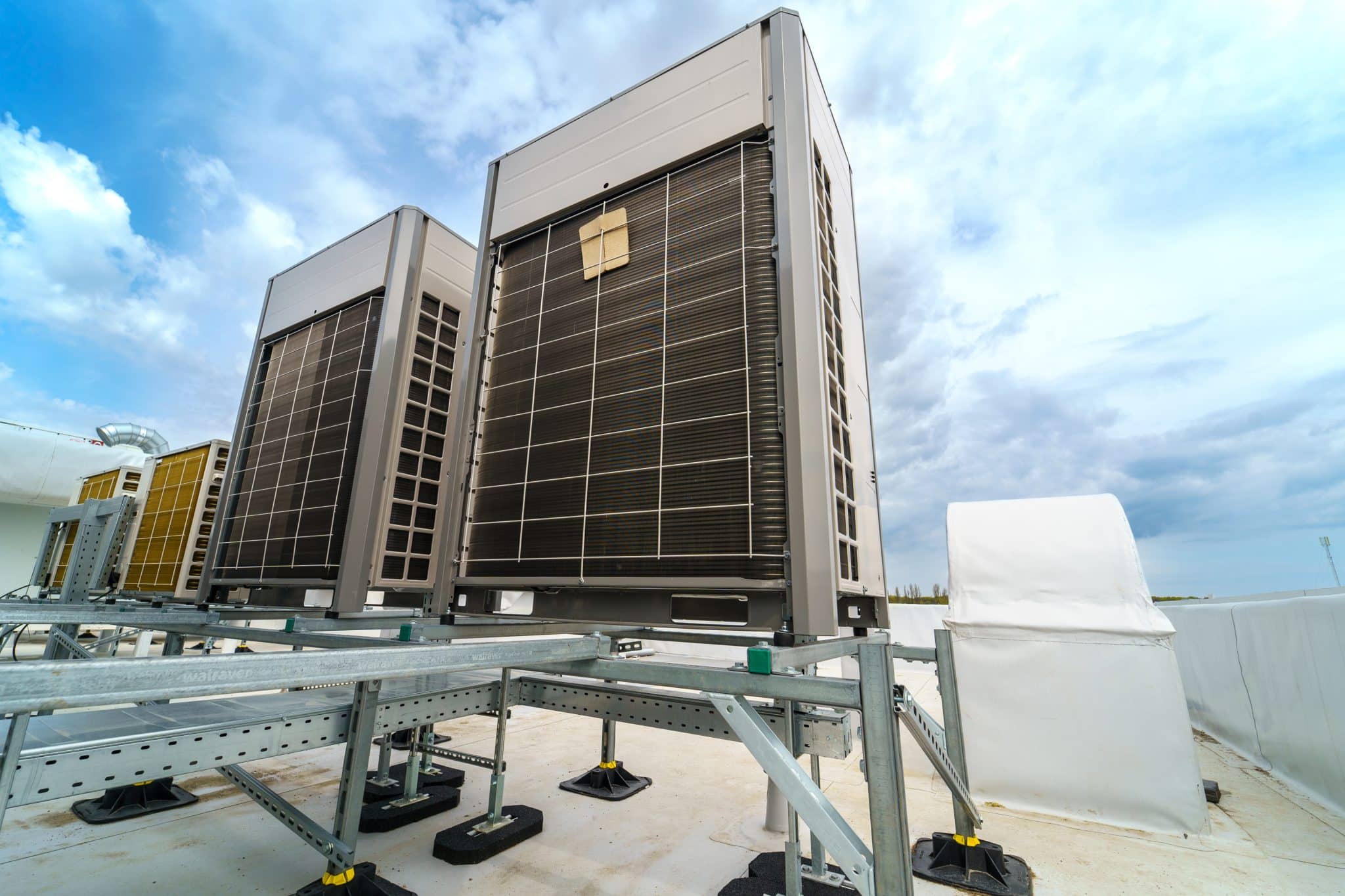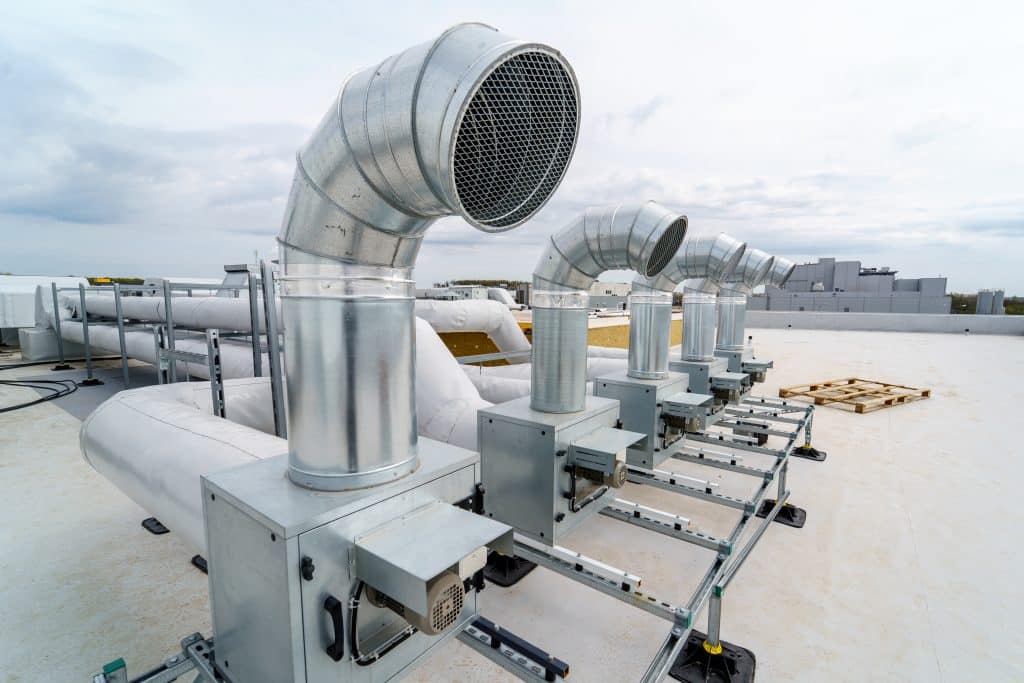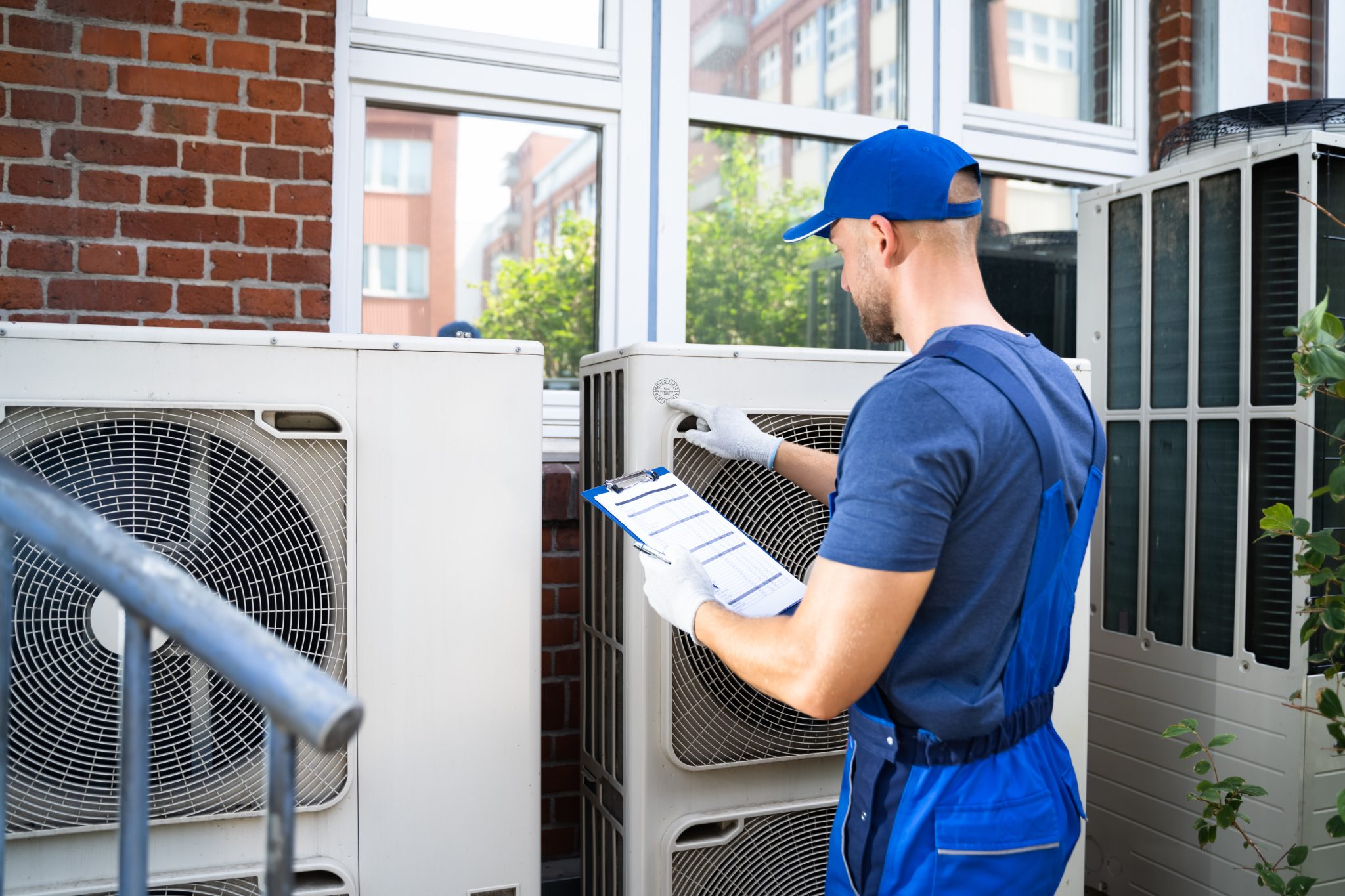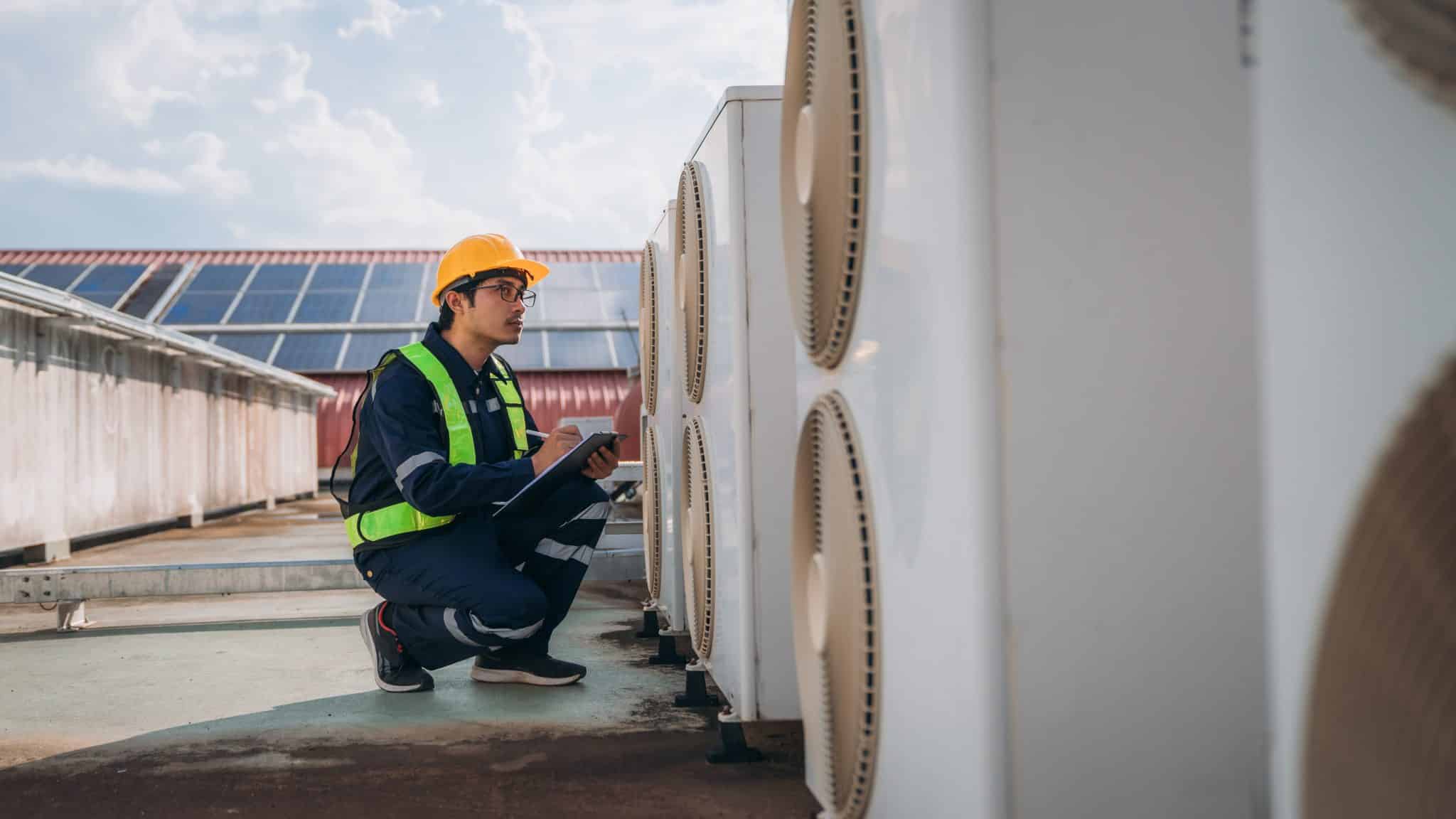Managing a commercial property involves a myriad of responsibilities, not the least of which is ensuring the optimal operation of the building’s HVAC (Heating, Ventilation, and Air Conditioning) system.
A well-functioning HVAC system is crucial for maintaining a comfortable environment, ensuring the health and safety of building occupants, and controlling operational costs.
Read on for more information about commercial HVAC systems for facility managers, owners, and tenants in the Central Florida region, ensuring your facilities run smoothly and efficiently.
Understanding Commercial HVAC
Commercial HVAC systems are designed to meet the demands of larger spaces. This includes office buildings, warehouses, shopping centers, and apartment complexes. These systems are more complex than residential systems and are engineered to offer control over environmental conditions across many zones in a commercial space.
Commercial HVAC systems ensure optimal air quality and temperature control which are crucial for both the comfort and efficiency of the equipment.
How Commercial HVAC Systems Operate
Commercial HVAC systems have a goal of exchanging indoor air with fresh outdoor air, regulating temperature, and removing excess humidity. This is accomplished with a sophisticated network of components working together. These include compressors, heat exchangers, evaporators, and ventilation ducts.
Heating and Cooling Dynamics
Commercial HVAC systems use various types of energy sources like electricity or gas to heat indoor air. Cooling processes on the other hand, involve removing indoor heat and moving it outdoors while it dehumidifies the air. This ensures a continuous supply of fresh air and keeps air quality within healthy standards.
Types of Commercial HVAC Systems
Packaged Units vs. Split Systems
Commercial environments typically employ either packaged HVAC units, which contain all necessary components within a single housing, or split systems, where components are divided between indoor and outdoor units. The choice between these systems depends on the specific requirements of the building, including space constraints and heating/cooling needs.
VRF Systems
Variable Refrigerant Flow (VRF) systems represent the cutting edge in commercial HVAC technology. These systems offer unparalleled efficiency and adaptability, allowing for precise temperature control across different zones without the need for extensive ductwork. VRF systems are particularly suited to buildings with varying occupancy or usage patterns.
Commercial vs. Residential HVAC
Differences
The most apparent difference lies in the scale and complexity of commercial systems, which are designed to cover larger areas and adapt to a wide range of commercial activities. This involves more robust components, modular designs for scalability, and advanced control systems for managing different zones within a building.
Installation and Maintenance
Commercial HVAC systems are often installed on rooftops to save space and reduce noise. This placement presents unique challenges for installation and maintenance, requiring specialized equipment and expertise. Regular maintenance is vital for ensuring the longevity and efficiency of commercial HVAC systems, involving tasks like filter replacements, system diagnostics, and refrigerant level checks.
Common Commercial HVAC Challenges
Preventing and Addressing Issues
Commercial HVAC systems often encounter a range of issues, from short cycling and refrigerant leaks to inefficiencies due to dirty filters or coils. Proactive maintenance is crucial for identifying potential problems before they escalate, ensuring the system operates efficiently and reducing the risk of costly repairs.
Effective Commercial HVAC Maintenance
A Proactive Approach
Comprehensive facility management is important when it comes to commercial HVAC maintenance. This includes routine inspections, cleaning of key components, timely filter changes, and system performance assessments. Establishing a maintenance schedule tailored to your building’s specific needs can prevent common issues and extend the system’s lifespan.
Ensuring HVAC Efficiency and Comfort
A well-maintained commercial HVAC system is essential for the smooth operation of any commercial facility. By understanding the basics of how these systems work, the types available, and the key differences from residential systems, facility managers can make informed decisions about installation, maintenance, and upgrades.
Taking a proactive approach not only ensures a comfortable environment for occupants but also contributes to the building’s overall efficiency.
If you own a commercial building in Florida and need Central Florida Store Services’ expertise, don’t hesitate to reach out. We are ready to handle all aspects of your commercial HVAC maintenance and repair.






